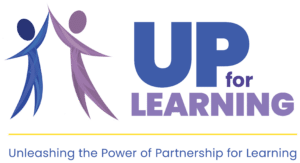by Alexandra Muck, Middlebury College
This summer, I attended the multi-day International Seminar on Amplifying Student Voice & Partnership, (find the blog at https://blog.uvm.edu/stuvoice) which received major support from the awesome people at UP for Learning.
I was at the crossroads between student and teacher, kid and adult, having graduated from college in February. At that crossroads, I was rather abruptly handed trust, respect, autonomy, and responsibility. And I had to figure out what to do with those things.
Suddenly all the theory I had been fed during years of being told you’ll need to know this in the real world had to be turned into practice.
My beliefs were no longer playthings for class discussion. They had to inform my actions, and my teaching.
If school taught me anything, it’s how little I truly know, despite all the work I put into alleviating my ignorance. And that’s a humbling place to be. After all, educators are generally seen as professional knowers of things who teach the things they know.
That’s not particularly accurate, of course students minds are not vessels to be filled but rather fires to be stoked, etc. But I do have to teach something, somehow, and that requires acting on my beliefs. One I hold dear is that students ought to be offered trust and autonomy before they’re on their own as adults.
I’m blessed to work at a school that offers me a lot of trust and freedom as a young educator. But after attending schools that generally treated education as a top-down endeavor, it can be hard to break those patterns and use my freedom to foster new norms based on respect and partnership. I have to challenge some of the reflexes and assumptions those schools imbued. And while I do it, I have to keep an open mind.
Teachers should work from a place of simultaneous conviction and humility. We must have enough conviction to express ourselves in front of students, parents, and colleagues. We must also endure humbling failures and uncertainties (staples of people-work) without losing our courage and commitment.
I’ve found it vital to have a support network that helps me do this.
UP for Learning helped me build my support network. It helped gather together people from diverse academic environments, and people with diverse worldviews, to talk about our shared desire to offer young people trust and autonomy. I felt so much less alone in my aspirations after the seminar. For educators who are asked to be stewards of young minds, bodies, and souls, it is so important to recognize that we’re not on our own, teaching into the void.
And we should make the most of our support networks. We might teach from different sets of values. We might come from public, or private, or charter schools, or ed. tech companies, or activist groups. But we are united in our desire to help young people along their journeys. We can use our differences as opportunities to gut-check our beliefs and sit with what we don’t know. And we must always always be curious enough to learn more.
In short, we should do what we ask our students to do: meet others where they are and learn from them. I’m so grateful to have attended an event where that happened. I highly encourage anyone who’s curious to attend next year’s event in Pennsylvania, and to find their own tribe of humble, hopeful individuals who help them feel like they’re not on the road alone.
About Alexandra Muck
Alex Muck is an insatiably curious person who thinks a lot about learning, stories, and life. If you want to strike up a conversation with her, just start talking about your favorite subject, the one that makes your eyes light up, or ask her a question you don’t think she’s heard before.

